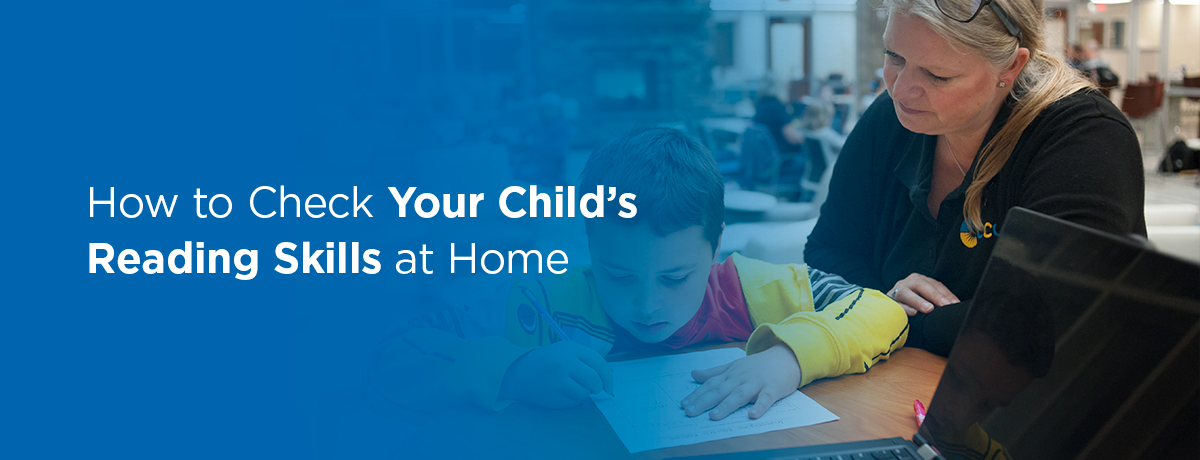Enrollment Now Open for Second Semester. Click Here
Enrollment Now Open for Second Semester. Click Here

As a parent, you want to ensure your child is developing skills throughout their K-12 education so that they are prepared to be successful lifelong readers. Reading skills are classified into levels that are determined based on factors such as grade level and reading assessments, which test skills like comprehension and pronunciation.
Finding the right reading level for your child will give them enough challenge to become a skilled reader.
A reading level is a measurement of how well your child can read a piece of text independently. This measurement serves as a foundational basis of what books your child should be reading. Your child’s level should match their reading skill level and still challenge them enough that they have room to grow.
The key to knowing how to determine a child’s reading level is choosing the right assessment. Reading level assessments are based on various determining factors, like your child’s grade level, interests, fluency, and comprehension of the material. Students may be below or above their grade level reading and thus need to begin at different levels to maximize their growth.
Parents play a critical role in their children’s reading skill development. Reading books to your children helps them stimulate their imagination, understand the context, and learn what words mean and how they sound and look. Recognizing the appropriate reading level for your child once they reach grade school can set them on a successful learning journey. Finding the right level books for your child will let them practice while being exposed to a small number of challenges to continue their reading skills growth.
There are several beneficial methods for testing your child’s reading level at home. The first is a framework scale called Lexile. This scale ranks books in order of their difficulty and matches your child’s reading level to a book.
Guided reading level (GRL) is another popular system. During this assessment, a child reads a book that is a standard level for the grade they are in. Parents can use this method to determine an appropriate reading level.
The developmental reading assessment (DRA) is also popular. This test considers factors such as comprehension, phonemic awareness, and fluency.
Another simple way for you to test your child’s reading level at home is by using the five-finger rule. This helpful strategy involves choosing a book and flipping it to a random page. If your child struggles to read more than five words on the page, it may be too advanced for them. You can try this method on several pages just to be sure, especially if your child is eager to read the book.
While it’s important to encourage your child to read books that may be a little challenging and require your assistance, you can use these test methods to find books that are a better match for their reading skills.
Pronunciation is an essential part of your child’s comprehension and reading development. Recognizing how words look and sound establishes a buildable foundation for your child to learn new words as they read. Practicing pronunciation with your child sets them up for expanding their vocabulary over time.
Children commonly face several pronunciation challenges. One challenge is pronouncing words that look the same but have a small pronunciation difference, such as the words “read” and “read” or the words “tear” and “tear”. Properly breaking apart and sounding out larger words is also challenging.
There are many activities you can do at home to practice or help your child with pronunciation, including:
Comprehension is the skill of reading text and understanding what it means. To develop your child’s comprehension, ask them questions about what they are reading. This method is called analytical thinking and can help teach your child to naturally look for context clues to understand the text. You can also ask them to recall details they just read, compare and contrast, make predictions, or say what they liked about the text.
You can also use vocabulary assessments to evaluate your child’s comprehension ability. One method is to make a list of words from books above, below, and at your child’s level. Start with the lowest level words and ask them to explain synonyms of the word instead of the actual meaning. This method will help your child better understand the meaning of words when reading new and higher-level books.
You may be wondering how you can test your child’s reading skills. The following are some of the popular reading assessment materials used in schools and homes:
In addition to following reading tips and strategies for students, you can use these activities to strengthen your child’s skills at home:
While you work with your child, watch for these warning signs that indicate your child may find the book they are reading is too challenging:
Every child learns at their own pace and deserves to be taught correct reading skills to develop. At Commonwealth Charter Academy (CCA), we are committed to providing your child with a valuable cyber school experience that is customized to your child’s pace and learning development.
Contact CCA to learn more about how you can see an improvement in your child’s reading skills at home.
Enrollment Now Open for Second Semester. Click Here